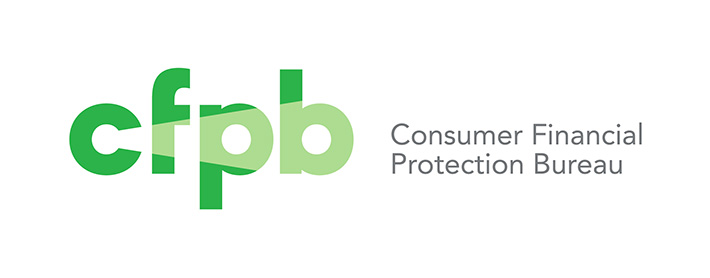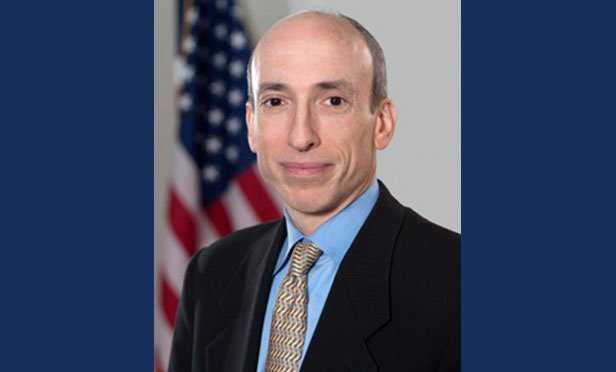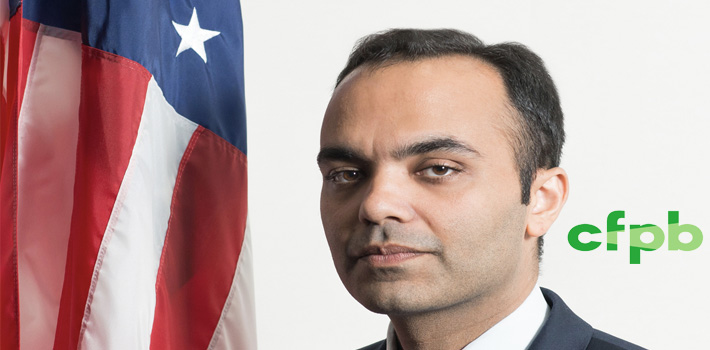Regulation
Steve Denis, SBFA on Why Maryland MCA Bill Failed
March 22, 2021 “In a lot of these places, a lot of the bills are well intended, believe it or not,” Steve Denis, executive director of the Small Business Finance Association, said. “Legislators just don’t understand enough about our industry to understand the nuances. We’ve worked really hard educating policymakers in Maryland, and frankly, they now understand our industry better.”
“In a lot of these places, a lot of the bills are well intended, believe it or not,” Steve Denis, executive director of the Small Business Finance Association, said. “Legislators just don’t understand enough about our industry to understand the nuances. We’ve worked really hard educating policymakers in Maryland, and frankly, they now understand our industry better.”
Denis was referring to the nearly unanimous canning of Maryland’s MCA “Prohibition” bill last week. The bill failed to get enough support to leave the committee, blocked by a 19 to 3 vote against bringing the law out to the House floor. Denis, a proponent of the MCA and alt financing industry for years, said it was due to legislators understanding the need for capital “out there during the pandemic” and how harmful an APR cap could be for both business owners and the broker industry.
The law was originally proposed last year before covid shutdowns, but that also failed to make it to the floor. It now appears to be an annual event.
“Our goal as an organization is to make sure that small businesses have access to all different types of financial products and that we believe that small businesses are in the best position to make good decisions for their businesses,” Denis said. “The bill in Maryland narrowly targeted MCA products, and as you know and a lot of folks in the industry know, that sometimes MCA is in the best interest of the business, there’s a lot of benefits to an MCA.”
Denis punctuated his statement with the mantra- we were not out of the woods yet. An APR disclosure bill was just introduced in the Connecticut State Senate last month, modeled off the New York APR bill set to go into effect this year. Denis was hopeful the legislators could learn from speaking to industry interests and change their course like in Maryland.
“We are engaged, I think we’re in a good spot. With any of these bills, Maryland, Connecticut, I caution you know we’re not out of the woods yet,” Denis said. “We still want to work really closely with policymakers. We’re for meaningful disclosure, we think there needs to be some guardrails on our industry, but I think that the most important thing we can do is continue to educate folks in states.”
Maryland’s Latest Merchant Cash Advance Prohibition Bill Failed to Advance
March 18, 2021 Despite the rapid advancement of the newest merchant cash advance prohibition bill in the Maryland state legislature, the bill failed to jump over the final hurdle in a House Committee hearing on Thursday. Delegate Seth Howard (R), who introduced the bill, vigorously advocated for it to move forward so that it could proceed to the Floor, going so far as to say he was willing to make some concessions to at least get “the regulatory structure” of the bill into law.
Despite the rapid advancement of the newest merchant cash advance prohibition bill in the Maryland state legislature, the bill failed to jump over the final hurdle in a House Committee hearing on Thursday. Delegate Seth Howard (R), who introduced the bill, vigorously advocated for it to move forward so that it could proceed to the Floor, going so far as to say he was willing to make some concessions to at least get “the regulatory structure” of the bill into law.
“I don’t want to snatch defeat from the jaws of victory,” he maintained.
There were several amendments up for consideration, including the inclusion or removal of a 24% APR rate cap on MCA transactions. The subject of APR dominated the light Q&A that took place, but one delegate voiced concern that creating restrictions on capital providers to businesses that might not be able to obtain funding elsewhere would probably be counterproductive. And when a roll call of votes was taken to determine if the Bill should advance to the Floor, he voted no, as did nineteen of his colleagues. Only three voted yes, so the bill did not advance, ending its prospects for the 2021 legislative session. However, it could be reintroduced again in 2022.
Committee Vice-Chair Kathleen Dumais (D) said that she thought the bill “was not ready” despite Delegate Howard “having worked hard on it.” This was Howard’s second try in two years to move it forward. His first attempt, introduced on February 7, 2020, was called the Merchant Cash Advance Prohibition Bill. The more recent one dropped the “prohibition” label but used language that would have effectively prohibited them in the state of Maryland.
CFPB, SEC Chair Appointments Begin Senate Hearing
March 2, 2021CFPB Chair Nominee Rohit Chopra (“Chopra like Oprah” he explained) and SEC Chair nominee Gary Gensler faced questions from Senators in the first confirmation hearings on Tuesday.
The pair were fielded questions over a video call. The confirmation hearings are mostly ceremonial; with a partisan house and senate, it is unlikely either appointment will be blocked.
Senators used their time to make question-statements featuring popular political talking points. Topics ranged from student loan finance reform, Bitcoin and crypto regulation, environmental reform through business regulation, and retail stock trading protections.
The appointees answered in the uniform tone of life-long public servicemen that have mastered the art of not directly answering questions. Each demonstrates their respective regulator points of view through action. By Reading each appointee’s resume, it becomes clear why they were chosen for Biden’s regulatory offices.
Chopra became a secretary at the CFPB when the organization was minted in 2008, and he focused on regulating student loans. The CFPB under Chopra will likely focus on extending CFPB regulatory controls over lending, payday lending, student debt, and possibly even fintech lending.
Gensler was the Commodity Futures Trading Commission’s chair, and he helped scale up securities regulation following the housing crisis, his work creating the Dodd-Frank act. The SEC will likely ramp up regulatory action over crypto-currency and address concerns with retail investing and public security sales.
“Technologies change, and markets change, but we should always evaluate new approaches to markets,” Gensler said in response to questions about stock trading and gamification.
Steve Daines, a Republican from Montana, asked Chopra his opinion whether the CFPB should be led by a multiple-member commission to avoid politicization over the leadership. Chopra said it wasn’t up to him.
“It’s the job of Congress to decide the agency structure. In my view, regardless if it’s a single director, there needs to be accountability, responsiveness,” Chopra said. “Where I sit at the FTC, this agency has missed some of the worst engagements when it comes to big tech privacy, while the CFTC under Gary did take action and was transparent.”
When the Trump administration attempted to appoint a new CFPB director, the Obama chair claimed it was illegal for the president to seat a new chair. In June last year, the Supreme Court said that was unconstitutional, and like most other executive offices, the president has the power to appoint leaders.
Chopra did say that regulating student loan debt was something under the purview of the CFPB. He was asked if CFPB had the authority to address the $1.7 trillion in student loan debt.
“Yes, my understanding is that the existing law and regulations, those financial services are covered.” He said.
Senator John Kennedy, a Louisianan democrat who tuned republican after 2007, asked Gary Gensler about the great recession and his time creating regulation at the US Treasury in the aftermath.
“Why didn’t anybody go to jail?” Kennedy said.
“Well, I wonder the answer to that question too; I was pursuing civil cases. It is largely up to the Department of Justice,” Gensler tried to answer. “These cases are hard to try and hard to find intent.”
Bill Hagarty, a Republican from Tennessee, asked Gensler about using business regulatory offices for social reforms, using the local proverb “You don’t shoot where the rabbit was.”
Andrew Smith Recalls Era as FTC Director
February 27, 2021Andrew Smith, who became Director of the FTC’s Bureau of Consumer Protection (BCP) in 2018, ended his time with the agency on January 29, 2021. In a LinkedIn post recapping his tenure there, he said:
Despite a month-long government shutdown and a once-in-a-century pandemic, BCP brought more than 200 enforcement actions against companies great and small, including many household names, obtaining strong injunctions and billions of dollars in civil penalties and consumer redress.
BCP also had several firsts, including the first cases holding technology platforms liable in connection with user-generated content; the first small business financing cases; the first cases against VoIP service providers and finance companies for assisting and facilitating fraud; the first cases involving fake reviews, fake rankings and consumer review gag provisions; the first fair lending case at the FTC in more than a decade; the first paperless redress program; and the first CBD cases.
The FTC has been going through some changes with the introduction of a new administration. FTC Commissioner Rohit Chopra, for example, will be the next head of the CFPB, pending his confirmation.
CFPB’s Reach May Extend to PPP Lending
February 16, 2021 The CFPB’s Winter 2021 Supervisory Highlights Report that was published late last month, covered a section on small business lending. And it’s not related to the Bureau’s work on Section 1071.
The CFPB’s Winter 2021 Supervisory Highlights Report that was published late last month, covered a section on small business lending. And it’s not related to the Bureau’s work on Section 1071.
The foray into non-consumer finance was instead driven by PPP lending.
“Consistent with its authority to ensure compliance with the Equal Credit Opportunity Act (ECOA), the Bureau conducted [Prioritized Assessments] to assess potential fair lending risks attendant to the institutions’ participation in the [PPP] program,” the report said.
Accordingly, the CFPB determined that small business lenders that restricted or limited eligibility such as banks who only permitted applications from existing customers, for example, “may have a disproportionate negative impact on a prohibited basis and run a risk of violating the ECOA and Regulation B.”
The CFPB conceded that it had not actually investigated if violations occurred and noted that the majority of institutions had argued that such limitations were either in place to comply with Know Your Customer legal requirements, to prevent fraud, or both.
The CFPB did not say that it had supervisory authority over non-banks that participated in PPP, but it did signal that its purview was larger than just consumers when it came to the institutions it supervised.
The report can be viewed here.
The CFPB is expected to have more proactive involvement in small business finance under its new incoming director, Rohit Chopra. Chopra’s nomination was formally submitted on February 13th. Dave Uejio, the Bureau’s Chief Strategy Officer, has been serving as Acting Director since President Biden took office.
Biden SEC Pick: MIT fintech professor, helped create Dodd-Frank
January 21, 2021 As President Biden’s executive appointments await senate approval, crypto and security holders will be waiting anxiously for one in particular: Gary Gensler. A seasoned financial expert in and out of the public and private sector, Gensler most recently taught blockchain finance classes at the MIT Sloan School of management. What will this crypto researcher bring to the SEC?
As President Biden’s executive appointments await senate approval, crypto and security holders will be waiting anxiously for one in particular: Gary Gensler. A seasoned financial expert in and out of the public and private sector, Gensler most recently taught blockchain finance classes at the MIT Sloan School of management. What will this crypto researcher bring to the SEC?
By looking at his past research topics, and class syllabi, there may be some foreshadowing. Much of his focus has been on emerging fintech in business. Gensler doesn't just support innovation in banking and finance; he has been actively teaching grad students how to build blockchain-based businesses for the past couple of years.
Last spring, he taught a course called "Fintech: Shaping the Financial World" focused on leveraging blockchain tech and AI.
"This technology has real potential as a catalyst for change in the world of finance and the broader economy," Gensler said in testimony before Congress. “Though there are many technical and commercial challenges yet to overcome, I’m an optimist and want to see this new technology succeed.”
When it comes to regulation, Gensler is light, explicitly stating in an interview with another MIT researcher, “we must preserve the freedom for firms to fail,” and that “it’s best to show some flexibility.” While it is true that activity of any significant size has to be contained within the current regulatory framework,” Gensler said, “the government should put smaller firms in “a regulatory sandbox.”
Before teaching about bitcoin, Gensler worked at Goldman Sachs, where he made partner by 30 years old, the youngest ever to make partner at the time. He went on to lead the team that advised the NFL in the most lucrative TV in history in 1990.
After leaving Goldman, Gensler worked in the US Treasury and eventually chairman of the Commodity Futures Trading Commission under Obama. Though he calls for easy regulation for smaller firms, His work at the CFTC following the 2008 financial crisis culminated in the 2010 Dodd-Frank act.
When it comes to cryptocurrencies, Gensler has said the regulatory framework would “guard against illicit activities, protect investors and their funds, and promote market integrity.”
He has said cryptocurrency, in general, is both a security and a commodity. Some coins like Ripple are more securities, while Bitcoin is not.
Official Who Wants to “Wipe Out” Merchant Cash Advance Will Be Next CFPB Head
January 18, 2021 Rohit Chopra, an FTC Commissioner, will take over as head of the Consumer Financial Protection Bureau under incoming President Joe Biden, sources say.
Rohit Chopra, an FTC Commissioner, will take over as head of the Consumer Financial Protection Bureau under incoming President Joe Biden, sources say.
Chopra’s name made the rounds in 2020 when he told NBC News that he was looking for a “systemic solution” that can “wipe out” all merchant cash advance companies.
His candid comments aligned with an official statement he put out in August in which he opined that the structure of MCAs “may be a sham since many of these products require fixed daily payments…”
He further added that there were “serious questions as to whether these merchant cash advance products are actually closed-end installment loans, subject to federal and state protections including anti-discrimination laws, such as the Equal Credit Opportunity Act, and usury caps.”
His transfer to the CFPB could be viewed as unwelcome news for the MCA industry as the agency is currently in the process of finalizing the types of financial institutions it believes it should maintain some jurisdiction over. Originally, MCA companies were poised to be excluded from the data reporting requirement set forth by Section 1071 of Dodd-Frank but that could very well soon change.
Transcript and Recording of Major FTC Case Before the US Supreme Court
January 14, 2021Oral arguments took place yesterday in AMG Capital Management, LLC et al. v Federal Trade Commission before the United States Supreme Court. At issue is the debate over whether or not the FTC has the authority to force defendants to disgorge with “illegally obtained” funds when a lawsuit is brought under Section 13(b) of the FTC Act.
Transcript here
MP3 Recording Here
FTC Commissioner Rohit Chopra had reportedly told NBC News last April that he was looking for a systemic solution that would “wipe out” predatory lenders. If the Supreme Court rules against the FTC in this case, that plan could be stymied.





























